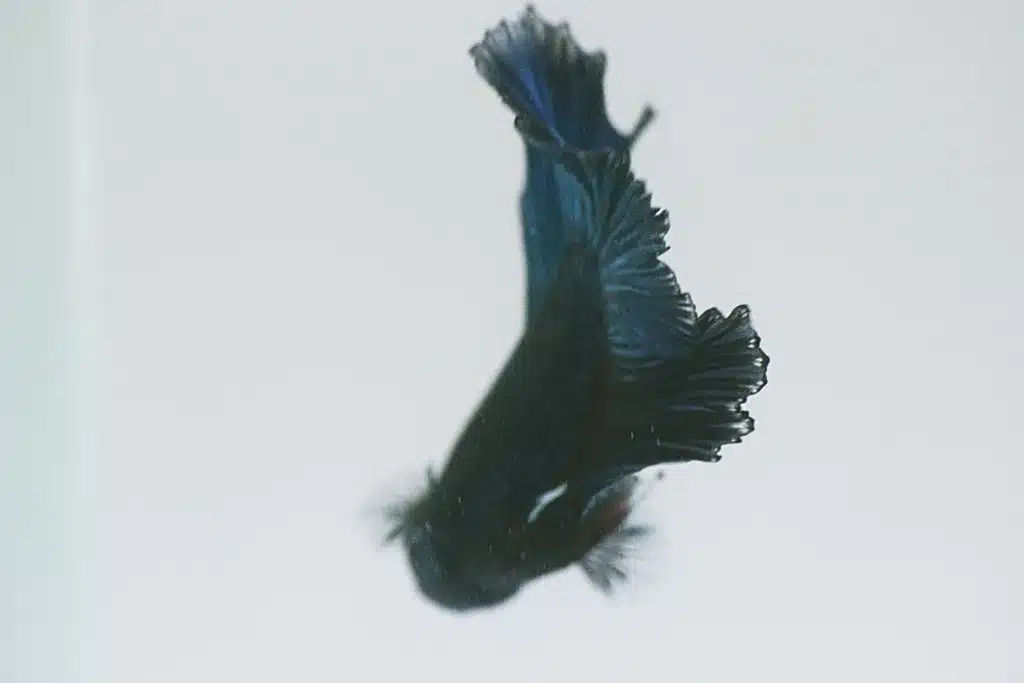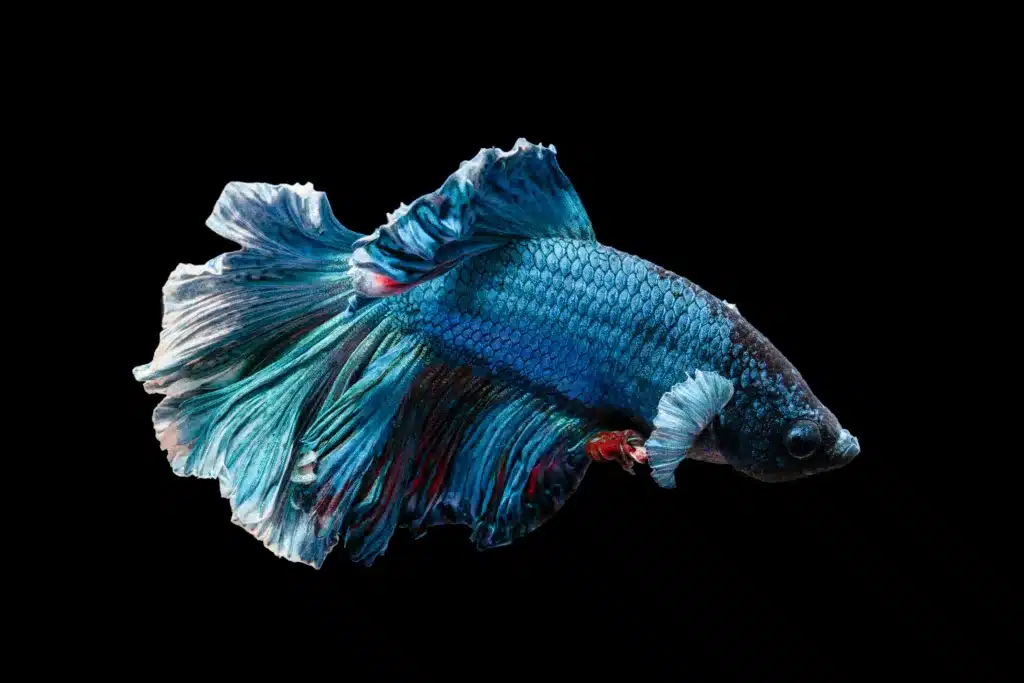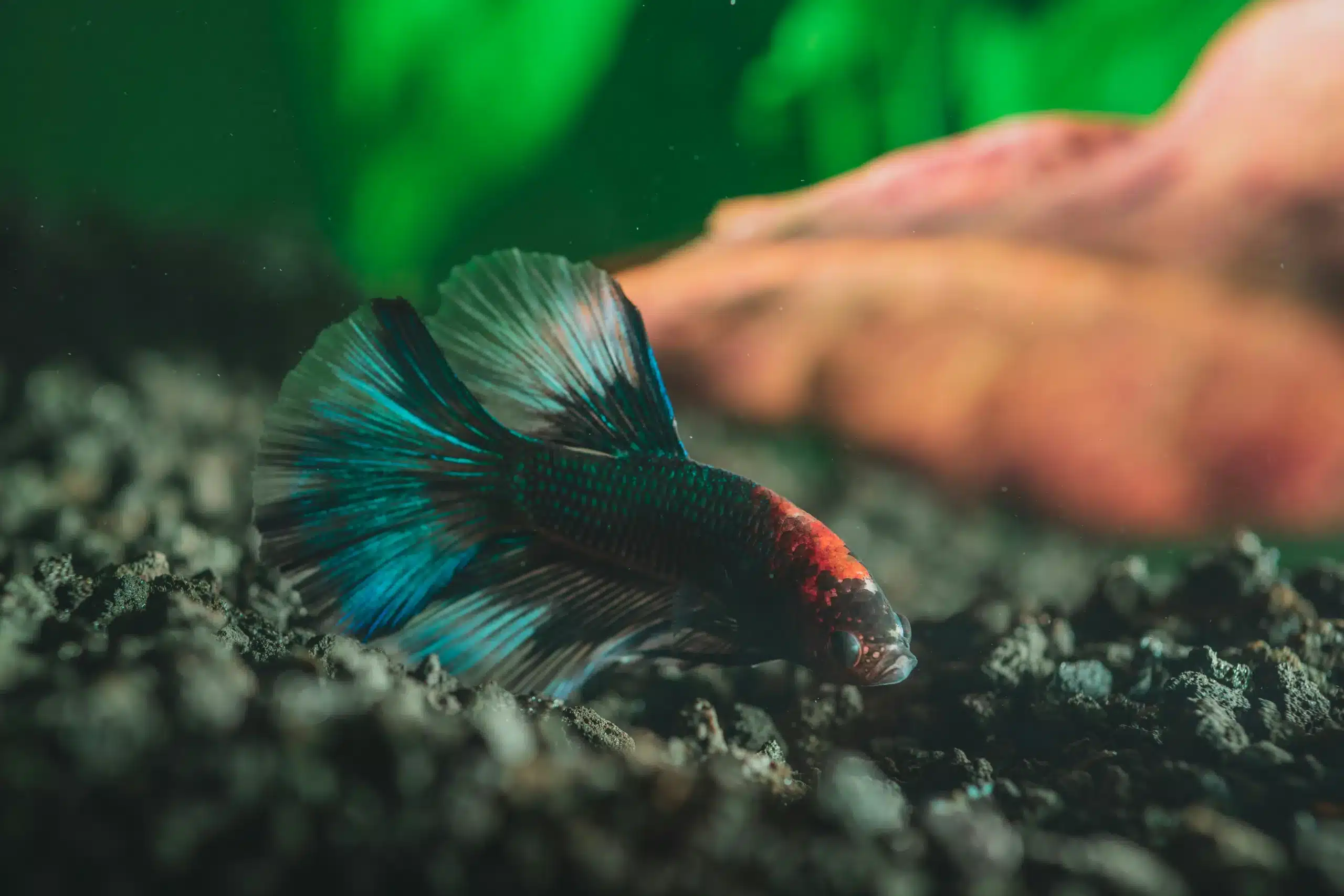Have you ever wondered if it’s possible to overfeed your betta fish? It might seem small, but your role in feeding your finned friend correctly is super important. Whether you’re a seasoned betta keeper or just starting out, getting the hang of feeding can be tricky. In this guide, we’ll dive into everything you need to know about feeding your betta—how much is too much, signs that you might be overdoing it, and what to do if you accidentally turn mealtime into a feast. Stick with me, and let’s ensure your betta is happy, healthy, and not overfed!
Can You Overfeed a Betta Fish?
Absolutely, you can overfeed a betta fish, and it’s more common than you might think. Bettas are little opportunists regarding food and often eat more than they should if given the chance. This might make them look adorably chubby at first, but overfeeding can lead to some severe health problems down the line, which we want to avoid at all costs.
When you overfeed your betta, you risk their health with potential obesity and digestive issues. You’re also jeopardizing the quality of their water. Excess food can decompose in the tank, leading to poor water conditions that can stress out your betta and lead to disease.
Remember, bettas’ stomachs are about the size of their eyeball, so they don’t need much to fill up. Stick around, and I’ll share more tips on recognizing the signs of overfeeding and keeping your betta’s feeding just right.

What Are the Signs of Overfeeding a Betta Fish?
Recognizing the symptoms of overfeeding in betta fish is critical for their health and the hygiene of their surroundings. Here’s what you should look out for:
Physical Symptoms
1. Bloated Belly: One of the most noticeable signs of overfeeding is a visibly swollen or bloated belly in your betta. A healthy betta should have a sleek, streamlined body. If your betta starts to look unusually round or puffy, it’s likely a sign that it has been overeating.
2. Lethargy: Overfed bettas often become sluggish and may show less interest in their surroundings. Suppose you notice your betta is less active than usual or spends a lot of time lying at the bottom or on the leaves of plants. In that case, it might be experiencing digestive discomfort.
3. Trouble Swimming: Overeating can lead to swim bladder problems, where the fish has difficulty maintaining buoyancy. This can cause the betta to float on one side, swim sideways, or struggle to rise from the bottom of the tank.
Tank Indicators
4. Excess Food Accumulation: Leftover food clearly indicates overfeeding. If you see food particles on the tank substrate or floating on the water surface after feeding time, you are likely feeding your betta too much.
5. Cloudy Water: Uneaten food decomposes and releases ammonia and other harmful chemicals, leading to cloudy and unhealthy tank water. If overfeeding is a regular occurrence, frequent water changes might be needed.
6. Increased Algae Growth: Algae growth can often be attributed to overfeeding. Excess nutrients from rotting food fuel algae blooms, which can cover surfaces and disrupt your aquarium’s aesthetic and ecological balance.
Behavioral Changes
7. Decreased Appetite: Ironically, a constantly overfed betta may eventually show a decreased appetite. This could be due to discomfort or illness related to poor water quality or digestive issues.
8. Aggression or Stress: Overfed bettas might display increased aggression or signs of stress, such as frequent hiding or darting. Stress in fish, typically worsened by poor water quality, can weaken their immune systems, making them more susceptible to disease.
Regularly monitoring your betta’s behavior, physical appearance, and tank condition will help determine if you feed your fish appropriately. Adjustments to feeding habits can often quickly resolve minor issues. Still, any persistent problems should be addressed to prevent long-term health consequences for your betta. Always aim for moderation in feeding and maintain a clean and well-filtered tank to ensure your betta fish thrives.
How Much Should You Feed a Betta Fish?
Figuring out the right amount to feed your betta fish is vital to their health and longevity.
1. Portion Size: The general rule for feeding bettas is to offer them as much as they can eat in about two minutes. For adult bettas, this usually means 2-4 pellets of betta-specific food once or twice a day. Younger or growing bettas may need more frequent feedings.
2. Type of Food: Betta fish thrive on a diet that includes pellets formulated specifically for them, which contain the appropriate nutrients that bettas require. In addition to pellets, occasional frozen or live food treats such as bloodworms, daphnia, or brine shrimp can provide variety and extra nutrition.
3. Consistent Feeding Times: Feeding your betta at the exact times each day helps regulate their metabolism and prevents overfeeding. A regular schedule also makes it easier to monitor their appetite and health.

What Should I Do if I Accidentally Overfeed My Betta Fish?
Accidentally overfeeding your betta fish can happen, especially if you’re new to fish-keeping or experimenting with new foods. If you’ve given your betta too much food, here are some steps you can take to mitigate any negative effects and prevent future issues:
1. Remove Excess Food: Remove any uneaten food from the tank immediately. Use a tiny mesh net or a siphon to gently extract food particles. This helps prevent the food from decomposing in the tank, which could deteriorate water quality by increasing ammonia and nitrite levels.
2. Monitor Your Betta: Watch your betta closely for the next few hours. Signs of discomfort due to overeating might include lethargy, bloating, or difficulty swimming. These symptoms should be temporary, but keeping an eye on them is essential.
3. Skip the Next Feeding: Giving your betta’s digestive system a break can help immensely. Skipping the next meal or fasting your betta for a full day can allow them to digest the excess food and recover from bloating or digestive stress.
4. Check Water Quality: Overfeeding can quickly lead to poor water conditions. Check for ammonia, nitrites, and nitrates in the water. If the levels are higher than usual, performing a partial water change of about 20-30% should help reduce the concentration of toxins and restore water quality.
Long-term Consequences of Overfeeding a Betta Fish
Continual overfeeding of betta fish can lead to long-term consequences that can significantly impact their health and the overall ecosystem of their tank. Here’s what could happen if overfeeding becomes a regular occurrence:
- Obesity: Like many animals, betta fish can become obese if consistently overfed, drastically shortening their lifespan.
- Organ Damage: Excessive fat deposits can damage the liver and other organs, impacting the fish’s overall health and functionality.
- Swim Bladder Disease: Overfeeding can cause the swim bladder to function improperly due to increased body fat or pressure from an enlarged stomach, affecting the betta’s ability to swim normally.
- Ammonia and Nitrite Spikes: Food that has not been eaten breaks down in the water, creating nitrites and ammonia that are harmful to fish and can rapidly deteriorate the quality of the water.
- Frequent Maintenance: To combat poor water conditions, more frequent water changes and tank cleanings will be necessary, which can be stressful for the fish and time-consuming for the owner.
- Prone to Infections: A compromised immune system, often a side effect of poor nutrition and stress from unstable water parameters, can make betta fish more susceptible to diseases.
- Fungal and Bacterial Growth: Betta fish can become infected with dangerous bacteria and fungi from overfed settings, particularly if their health is weakened.
Conclusion
Proper feeding is crucial for maintaining your betta fish’s health and environmental quality. Overfeeding is a common issue among betta owners. It can lead to severe problems such as obesity, poor water quality, and increased disease susceptibility.
To prevent these issues, it’s essential to feed your betta small, controlled portions—typically as much as they can consume in two minutes, once or twice a day. Ensure you’re using high-quality betta food and occasionally supplement with treats like brine shrimp or bloodworms to keep their diet varied and nutritious.
Regularly check for signs of overfeeding, such as leftover food or a bloated fish, and adjust feeding amounts and schedules accordingly. Also, maintain consistent tank cleaning to keep the water conditions optimal for your fish’s health.
